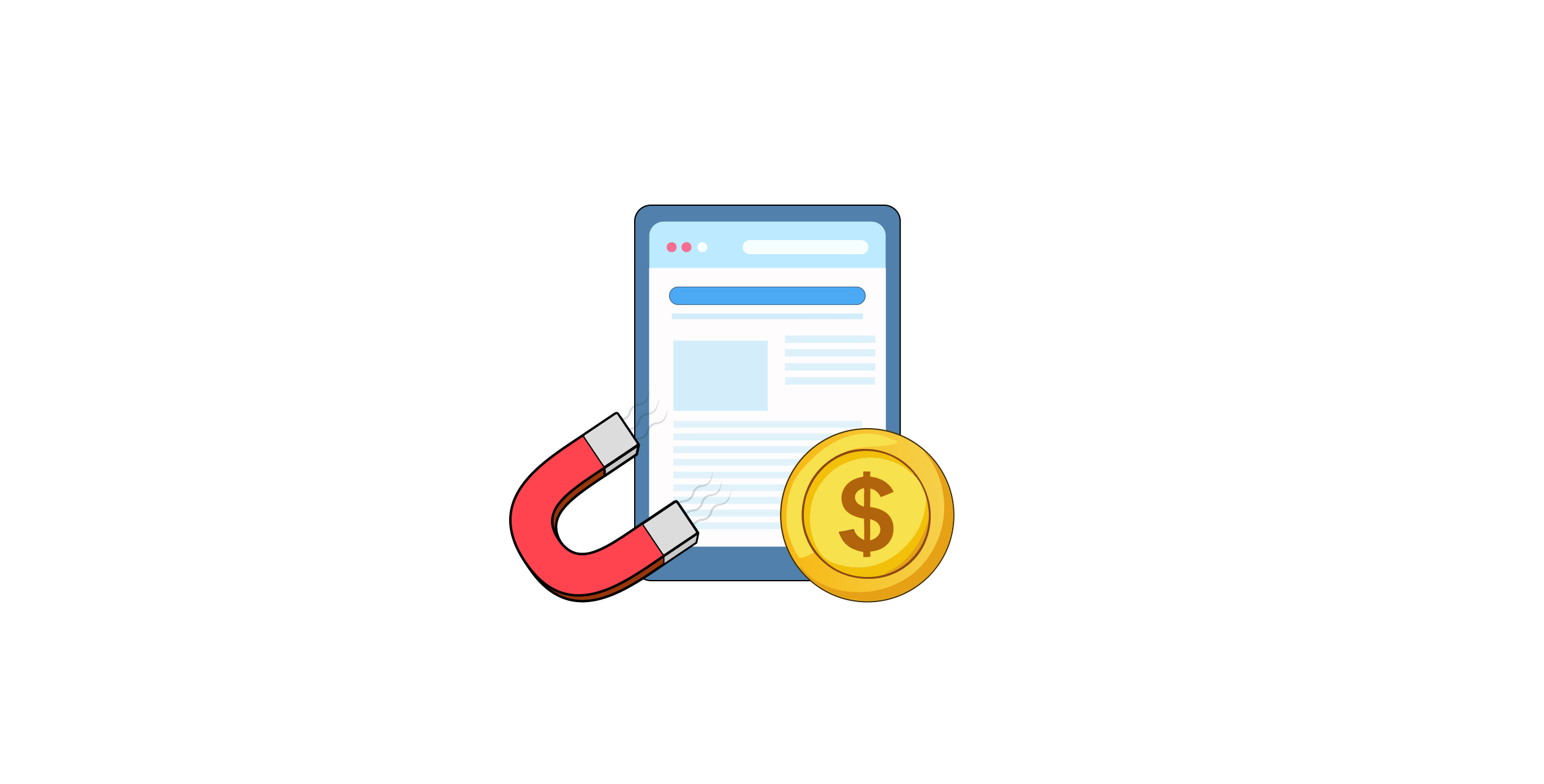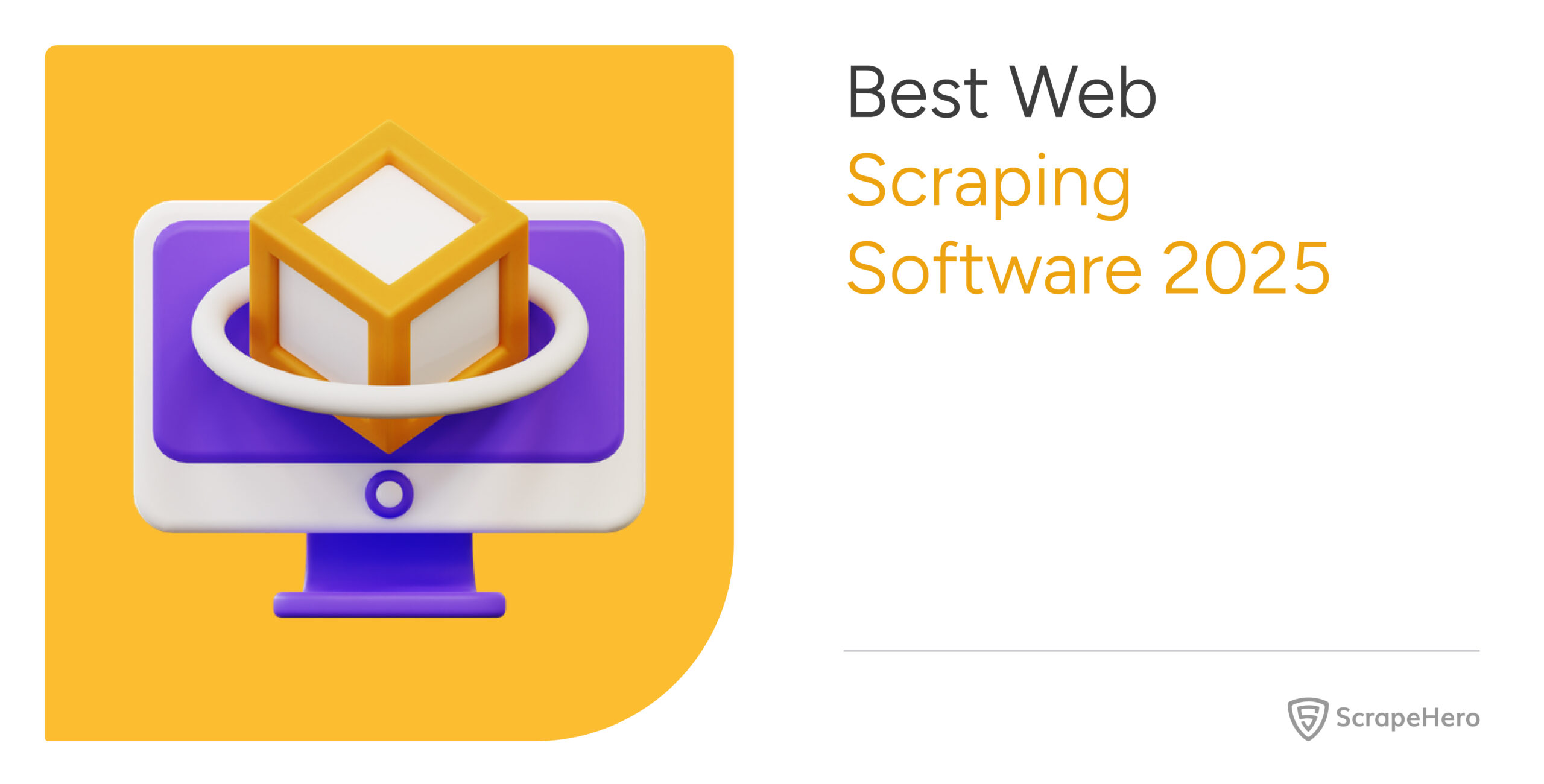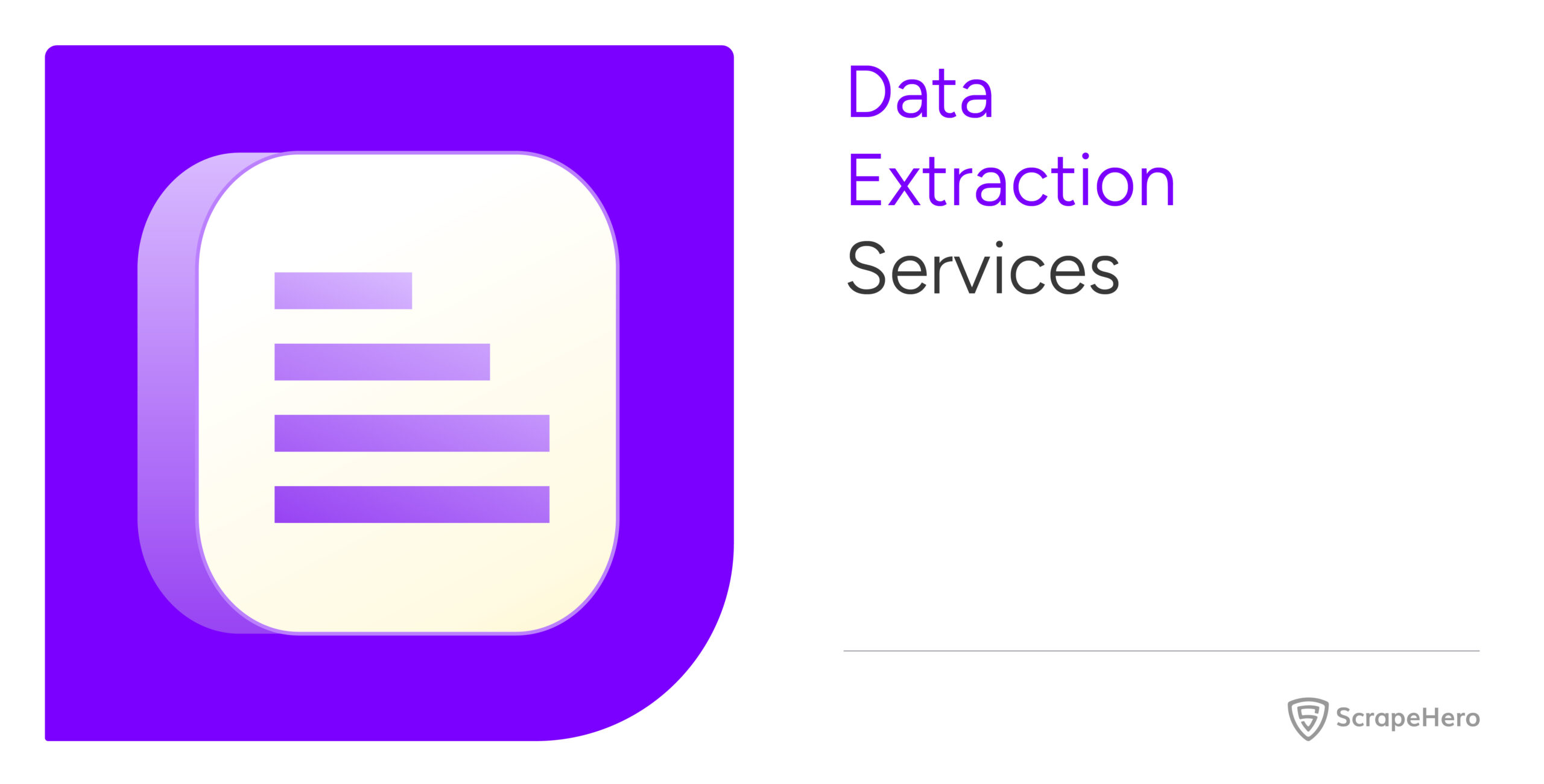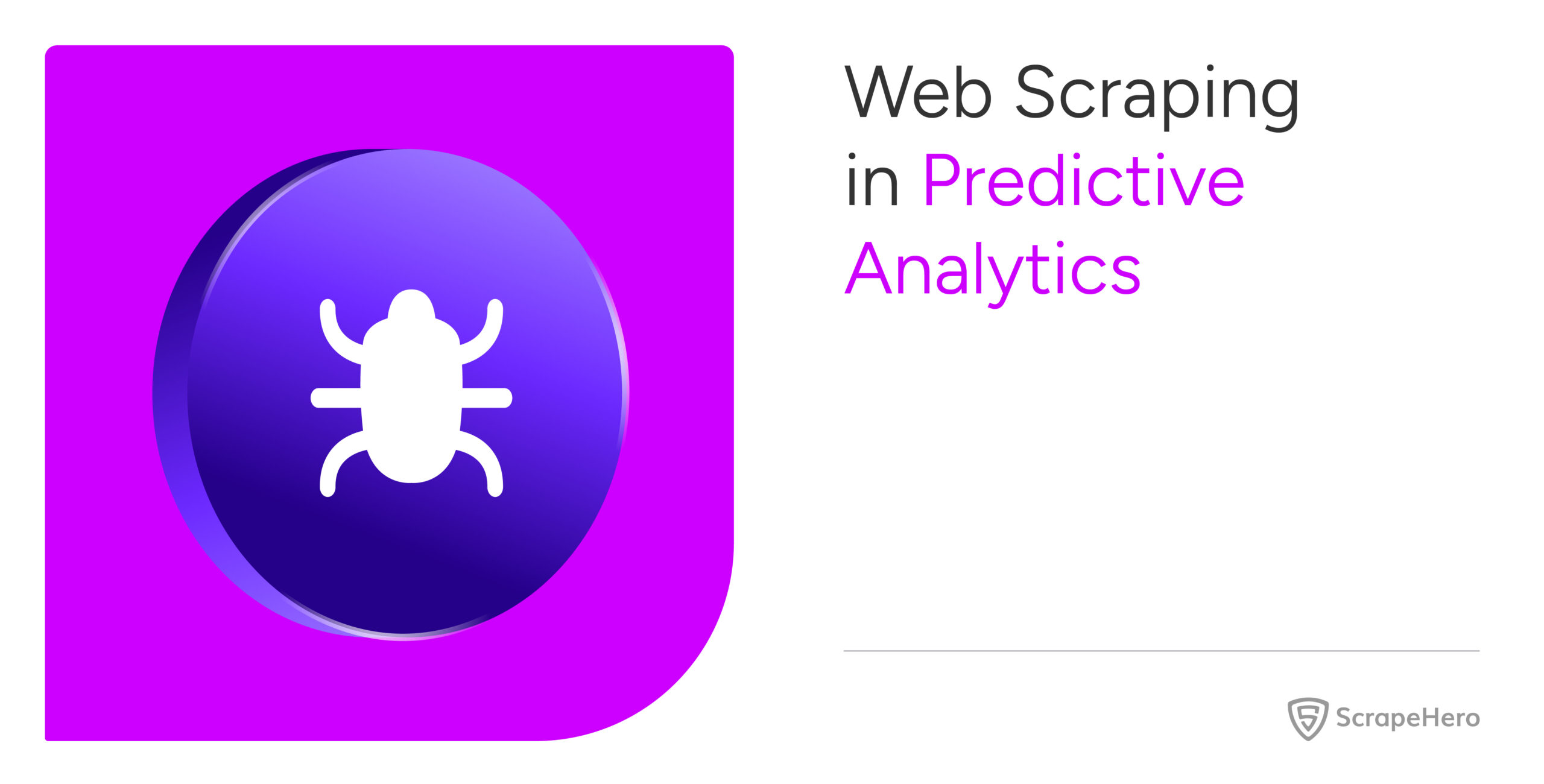It’s a data-driven world, without a doubt. According to Raconteur, the amount of data created on the Internet every day will reach 463 EB by 2025.
The next logical step is to utilize web scraping to access this data for one’s benefit.
However, an important question arises: Is a web scraping service worth the cost?
This article aims to answer that question by evaluating the cost-effectiveness of two primary approaches to web scraping—building an in-house solution versus outsourcing to a web scraping service provider like ScrapeHero.
With ScrapeHero Cloud, you can download data in just two clicks!Don’t want to code? ScrapeHero Cloud is exactly what you need.
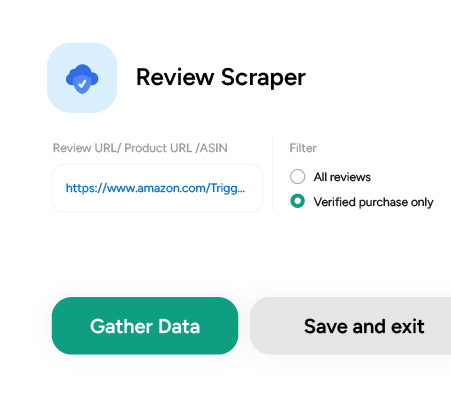
Building an In-House Web Scraping Solution
When you decide to extract the data you require from the Internet on your own, it involves paying for the individual components involved.
Let us discuss in detail the costs that arise when attempting to build an in-house web scraping solution.
- Developer Cost
- Tools
- Maintenance and Updates
- Infrastructure and Hosting
- Anti-Blocking Measures
- Project Management and Coordination
- Legal Considerations
Developer Cost
Developing an efficient in-house web scraping solution requires hiring skilled developers proficient in web scraping technologies.
According to Indeed, the annual salary of a web developer in the US is, on average, around $80,168. Additionally, you must consider recruitment and training costs, which can add another 20% to 30% to the overall expense.
Beyond that, the developers must have skills in Python, JavaScript, and data parsing, as well as experience with libraries such as BeautifulSoup and Selenium.
This learning curve and the need for continuous skill enhancement will increase the investment in human resources.
Tools
Developing a web scraping solution also involves spending on development tools, libraries, and frameworks.
While many open-source tools are available, the integration and customization required for large-scale operations often require paid software, adding to the overall cost.
Maintenance and Updates
Maintaining an in-house web scraping solution is often not a one-time investment.
Regular updates are required to adapt to website changes, prevent detection, and maintain data accuracy.
These updates often demand ongoing developer hours, adding to the total cost. On average, companies should budget 20% to 30% of the initial development cost annually for maintenance.
Infrastructure and Hosting
Setting up the infrastructure to support web scraping operations is another significant aspect of building an in-house solution.
This involves purchasing or arranging for servers or cloud computing resources that can handle the demands of large-scale data extraction.
The infrastructure must be robust enough to manage the high volume of requests sent to target websites, as well as the subsequent data processing and storage.
When deciding on infrastructure, it’s essential to assess the required computing power, bandwidth, and storage. For small to medium-scale scraping operations, on-premises servers might be enough.
However, for larger operations, cloud services like AWS (Amazon Web Services), Google Cloud, or Microsoft Azure are more suitable due to their scalability.
The cost of cloud services varies depending on the specific resources used, such as compute instances, storage volumes, and data transfer.
However, the recurring costs associated with cloud services can add up quickly.
Anti-Blocking Measures
Websites often implement sophisticated measures to detect and block scraping attempts, which can hinder your data extraction efforts.
To bypass these protections and ensure continuous scraping, you will need to invest in various anti-blocking services, including proxies, CAPTCHA solvers, and other related tools.
These measures are crucial and can significantly impact costs depending on the type and scale.
Project Management and Coordination
Coordinating an in-house web scraping project requires efficient project management tools and possibly the expertise of a dedicated project manager.
Web scraping projects are often complex and require a project coordinator to collaborate with developers, legal advisors, IT personnel, and data analysts.
While this may seem like a minor expense, it is a critical component of building a successful in-house web scraping solution.
Legal Considerations
When building an in-house web scraping solution, legal compliance is important.
Web scraping operates in a legal gray area, and it is important to understand and adhere to relevant laws and regulations to avoid potential legal battles.
To navigate these complexities, businesses must seek legal advice from experts well-versed in data privacy laws and regulations.
This cost of legal advice would be an additional expense to consider but a crucial one.
Outsourcing Web Scraping to a Service Provider
Now, let’s discuss the aspects of web scraping when outsourcing it to a reliable service like ScrapeHero.
Overview of Service Offerings
A web scraping service like ScrapeHero is a full-service data provider, meaning you do not need software, hardware, proxies, scraping tools, or scraping skills. The service provider will take care of everything.
A web scraping service’s package is comprehensive and includes all the aspects associated with data gathering, such as servers, bandwidth, proxy costs, etc.
It also includes monitoring website structure changes and handling the most common changes. The data quality checks performed and the support provided are also included.
Further benefits of a web scraping service include their ability to scale with your business, thereby providing flexibility and reducing the need for in-house expertise.
Web Scraping Service Cost
When outsourcing web scraping to a web scraping expert like ScrapeHero, the following are the costs covered:
- Service Fees- it covers the entire process of data extraction, from initial setup to data delivery.
- Customization and Set-up Fee
- Data Delivery and Storage Costs
- Proxy and Bandwidth Costs
- Maintenance and Update Fee
- Support and Consultation Fee
- Compliance and Legal Safeguards
The pricing models for web scraping services vary, with many offering subscription-based plans.
For instance, ScrapeHero’s pricing can range from $550 per month for on-demand scraping to $1,500 per month for enterprise-grade solutions.
This cost includes proxy management, data storage, and maintenance, which are additional expenses when building an in-house solution.
The primary benefits of outsourcing are the reduction in overhead costs and access to expert services.
Web Scraping Service, The Better Choice
The logical conclusion to the discussion of whether a web scraping service is worth the cost is that it is the best approach to web scraping.
This is especially true when your primary business does not involve web scraping, but you want to stay ahead in business.
ScrapeHero is a well-known web scraping service provider you can partner with to avoid the significant upfront investment cost associated with an in-house solution.
The following features make ScrapeHero your ideal web scraping service partner:
- Reasonable pricing
- No Long Term Contract
- Web Data Integration
- Customer Privacy
- Data Quality
- Quick Response Time
- Competitive Replacement Program to accommodate those looking for a better solution
- High Client Retention Rate
Connect with ScrapeHero and let us take care of all your web scraping needs while you focus on your core business.
FAQ
The cost of web scraping service is influenced by factors such as the volume of data, the frequency of scraping, the complexity of the target websites, and the need for proxies or advanced features like CAPTCHA solving.
Outsourcing to a web scraping service typically offers significant cost savings, especially for large-scale projects. It eliminates the need for upfront investments in infrastructure and ongoing maintenance.
Most reputable web scraping services offer transparent pricing models. However, it’s essential to clarify any additional charges for features like premium support, custom integrations, or data storage.
Web scraping services are highly scalable, allowing businesses to start small and increase their data extraction as needed without additional infrastructure investment.
Yes, transitioning from an in-house solution to a web scraping service is possible and often beneficial as it reduces ongoing maintenance and allows for greater scalability.

